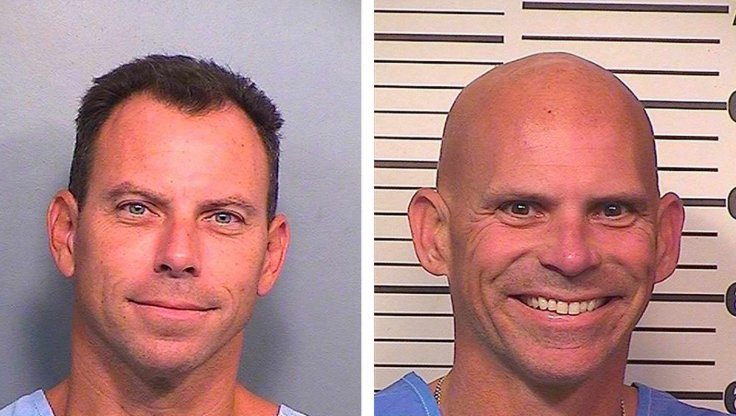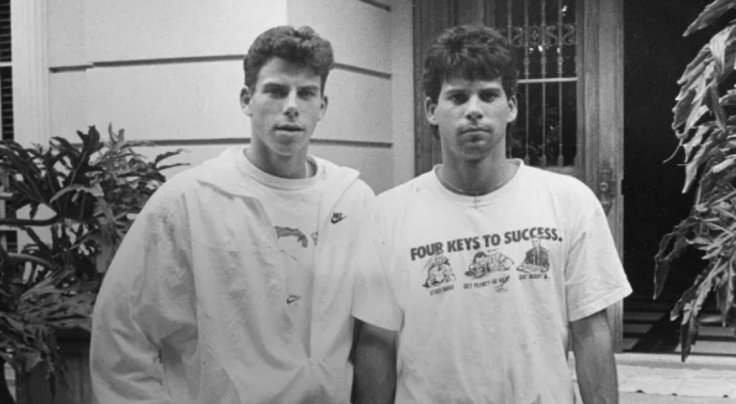The Menendez brothers are one step closer to freedom. Lyle and Erik Menendez are set to be resentenced after spending over 30 years in prison for the brutal shotgun murders of their parents, Jose and Kitty, in 1989. The case captivated the nation and later inspired a popular Netflix series more than three decades later.
Los Angeles District Attorney George Gascón announced on Thursday that the Menendez brothers will be resentenced during a press conference comprising over 300 journalists from around the world. He said that he will recommend the court make the brothers eligible for parole. The final sentence for the brothers will ultimately be determined by a court.
Almost Ready to Walk Out of Jail
X
Gascón noted that the men, now in their 50s, have undergone “a journey of redemption and rehabilitation” and have “paid their debt to society” through both the time they have served and their efforts to better the lives of others while in prison.
Gascón revealed that his office was divided on the decision to grant the brothers a chance at resentencing for the notorious murders, which he described as “atrocious acts.”

X
“There were people in the office who strongly believe the Menedez brothers should stay in prison for the rest of their life, and do not believe they’ve been molested,” he said.
“There are people in the office who believe they should be released immediately and were in fact molested,” he added.
“There’s no excuse for murder, and I will never imply that what we’re doing here is to excuse their behavior — because even if you get abused, the right path is to call the police and seek help.”
However, he acknowledged that people who have been abused can sometimes “become desperate” and may ultimately “kill their abuser in a moment of desperation.”

X
If a judge supports Gascón’s recommendation, resentencing the Menendez brothers for murder would result in new sentences eligible for parole, set at 50 years to life—25 years for each murder.
Also, because they were convicted before turning 26, they would be immediately eligible for parole under California’s Youthful Offender law if resentenced.
Murders that Captivated the Nation
The Menendez brothers’ case has recently gained renewed attention after new evidence emerged suggesting that the brothers had allegedly been repeatedly molested by their father, prompting a campaign for their release spearheaded by family members and celebrity supporters.

X
In 1996, the brothers were sentenced to life in prison without the possibility of parole for the brutal murders that took place in their family’s opulent Beverly Hills home.
Their highly publicized trial turned Erik and Lyle—who were 21 and 18 at the time—into household names and subjects of late-night comedy routines.
While their case had largely faded from public view since then, it came roaring back into the spotlight with the release of the hit Netflix series produced by Ryan Murphy, titled “Monsters: The Lyle and Erik Menendez Story,” which is based on the double homicides.
Last month, Los Angeles County District Attorney George Gascón revealed that his office had been re-examining the Menendez brothers’ case “for over a year” due to new evidence suggesting they endured frequent sexual abuse during their childhood.
A critical piece of this evidence is a shocking note—allegedly written by Erik to his late cousin, Andy Cano, just months before the murders—which mentions his fear of the alleged abuse inflicted by his father.
“I’ve been trying to avoid dad. It’s still happening Andy but it’s worse for me now,” the handwritten letter read in part.
“I never know when it’s going to happen and it’s driving me crazy. Every night I stay up thinking he might come in.”
Roy Rosselló, a former member of the Puerto Rican boy band Menudo, has also come forward with claims that he was sexually abused by Jose Menendez when he was 14.

X
Earlier this month, over 20 members from both Jose and Kitty’s families held a press conference in Los Angeles, urging that the brothers be resentenced, claiming that their experiences of sexual abuse were not adequately considered during the trial.
Their first trial resulted in a hung jury, but during their second trial—where both were convicted of first-degree murder—the judge ruled that any evidence of the brothers’ alleged molestation was inadmissible.
Family members have protested this decision, arguing that the exclusion of such evidence was due to sexual abuse against men and boys being taken less seriously at the time.


